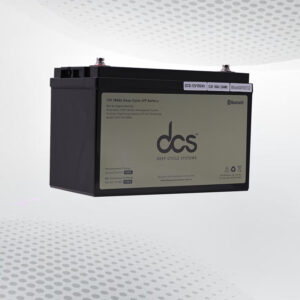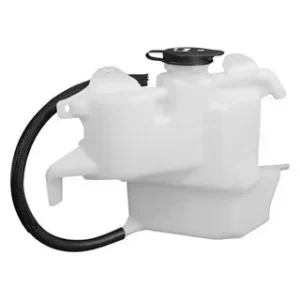Water is life. We all know the importance of staying hydrated, but have you ever considered what’s in your water? Tap water may seem clean, but it can contain contaminants affecting your health and wallet. That’s where Water Filter For Home come into play! Imagine sipping fresh water from your kitchen tap while saving money on bottled drinks. Home water filter systems provide a cost-effective solution for ensuring safe drinking water and contribute to a healthier lifestyle. With so many options available today, choosing the right system for your home can feel overwhelming.
Understanding Water-Filters: Types and How They Work
Water-Filters come in various types, each designed to remove specific contaminants. The most common include activated carbon, reverse osmosis, and UV filters. Activated carbon traps impurities through adsorption, effectively improving taste and odour while removing chlorine and some heavy metals.
Reverse osmosis systems force water through a semi-permeable membrane that blocks larger molecules like bacteria, viruses, and dissolved solids. This method ensures ultra-pure drinking water but may waste some water.
UV filters use ultraviolet light to kill harmful microorganisms without chemicals. They are often used as a final stage of purification for added safety. Each filter type has unique advantages depending on your needs, so it is essential to understand how they function before selecting one for your home.
Choosing the Right Water Filter for Your Home: A Comprehensive Guide
Choosing the right water filter for your home can feel overwhelming. With various options available, understanding your specific needs is essential. Start by assessing your water quality through testing kits or local reports to identify contaminants in your supply.
Next, consider the type of filter that best suits your household requirements. Activated carbon filters are great for removing chlorine and improving taste, while reverse osmosis systems tackle a broader range of impurities. If you have limited space, countertop or faucet-mounted options might be ideal.
Think about the maintenance and replacement costs associated with each system. Some filters require frequent changes or additional components, which could influence long-term expenses. Prioritize durability and efficiency to maximize health benefits and cost-effectiveness in the long run.
The Benefits of Installing a Home Water Filters System
Installing a home water filter system offers numerous benefits beyond improved taste.
Improved Taste and Odor
One of the main benefits of a home water filter system is that it removes impurities and contaminants that can affect the taste and odour of your water. This can be especially beneficial for those who have well water or live in areas with poor water quality.
Removal of Contaminants
Home water filters are designed to remove many contaminants from your drinking water, including chlorine, lead, bacteria, pesticides, and more. This can help improve the overall quality and safety of your drinking water.
Cost Savings
While purchasing bottled water may seem convenient, it can quickly add cost. Installing a home water filter system allows you to always have clean, filtered water without constantly buying bottled water.
Environmental Benefits
Using a home water filter system reduces your reliance on plastic bottled water, which hurts the environment. Plastic bottles take hundreds of years to decompose and contribute to pollution.
Health Benefits
Many people may not realise that their tap water contains harmful chemicals and contaminants that can negatively impact their health over time.
Comparing Water Filter Technologies: Activated Carbon, Reverse Osmosis, and More
Activated carbon filters are popular because they can remove chlorine, sediment, and volatile organic compounds. They work through adsorption, capturing impurities on the surface of the carbon granules. This technology is relatively affordable and easy to maintain, making it an ideal starting point for many households.
Reverse osmosis (RO) systems take filtration further by using a semi-permeable membrane. These systems eliminate contaminants like lead, fluoride, and arsenic from your water supply. While they provide high-quality purification, they can be more costly upfront and may waste some water during the filtering process.
Other technologies include UV light purifiers that kill bacteria and viruses without chemicals. While effective against microorganisms, these systems don’t address chemical contaminants or sediments in your water source. Each technology offers unique benefits tailored to different needs.
How to Test Your Water Quality: Determining the Need for a Filter
Testing your water quality is essential for understanding whether you need a home water filter. Start by checking for visible signs of contamination, such as discolouration or cloudiness. These can indicate the presence of sediment or minerals that may be unsafe.
Next, consider purchasing a home testing kit, which is available at most hardware stores. These kits typically test for common contaminants like lead, chlorine, and bacteria. Follow the instructions carefully to get accurate results.
You can also contact your local water utility company for annual reports on water quality in your area. They often provide information about potential contaminants that could affect your health. Awareness of what’s in your water helps you make informed decisions about suitable filtering options.
Top Features to Look for in a Home Water Purifier
When selecting a home water purifier, consider the filtration effectiveness. Look for systems that can eliminate contaminants, from chlorine to heavy metals. This ensures that your drinking water is safe and tastes great.
Next, consider flow rate and capacity. A unit that provides sufficient purified water quickly will meet your family’s needs without inconvenience. High-capacity filters often mean less frequent replacements, too, which saves time and money.
Ease of maintenance is another crucial feature. Choose models with easy-to-replace filters and clear indicators showing when to change. This simplicity ensures you can always access clean water without hassle or guesswork.
Cost Considerations: Investing in a Quality Water Filter
Investing in a quality Water Filter use can initially seem daunting, but it pays off in the long run. The initial cost may be higher than cheaper alternatives, yet the benefits far exceed this investment. Think about savings on bottled water and healthcare costs from cleaner drinking water.
Quality filters have longer lifespans and better filtration capabilities. They effectively remove harmful contaminants such as lead, chlorine, and bacteria. This means you’re not just buying a product; you’re purchasing peace of mind for your family’s health.
DIY vs. Professional Installation: Installing Your Water Filter System
Installing a Water Filter systems can be approached in two ways: DIY or professional installation. Many homeowners opt for the DIY route due to its cost-effectiveness. With clear instructions and online tutorials, setting up simple filters yourself is often manageable, like faucet-mounted units or pitcher filters.
However, more complex systems, such as reverse osmosis setups, may require expertise. Professional installers bring experience and ensure everything is fitted correctly without leaks or other issues. This peace of mind can be worth the extra investment if you’re uncertain about your plumbing skills.
Common Water Contaminants and How Filters Remove Them
Water can harbour various contaminants that pose health risks. Common culprits include bacteria, viruses, heavy metals like lead and mercury, and pesticides from agricultural runoff. These pollutants often find their way into municipal water systems or private wells, making it crucial to ensure safe drinking water.
Water-Filters are designed to tackle these issues effectively. For instance, activated carbon filters trap chlorine and other chemicals while improving taste. Reverse osmosis systems can eliminate up to 99% of dissolved solids, including harmful substances like arsenic.
Understanding the contaminants in your water can help you choose an appropriate filter system. Identifying specific needs ensures that you invest in a solution tailored to your household’s safety and well-being.
The Environmental Impact of Using Water-Filters: Reducing Plastic Waste
Using home Water-Filters plays a significant role in reducing plastic waste. Many people rely on bottled water for hydration, contributing to the staggering amount of single-use plastic in landfills and oceans yearly. Switching to a home water filter system helps eliminate the need for those disposable bottles.
Moreover, most Water-Filters are designed to be efficient and long-lasting. This means fewer resources are consumed over time than constantly purchasing bottled products—the environmental savings compound when more households filter tap water instead of buying external sources.
Additionally, many modern filtration systems utilize sustainable materials and technologies. Choosing eco-friendly options improves your drinking quality and supports efforts toward a greener planet by minimizing harmful pollution linked with plastic production and disposal.
Maintenance Tips: Keeping Your Best Water Purifier in Optimal Condition
Regular maintenance of your Best Water Purifier system ensures it operates at peak efficiency. Start by checking the manufacturer’s recommended filter cartridge replacement schedule. Replacing filters on time can significantly improve water quality and taste.
Clean components like pre-filters or sediment filters as needed. Periodic rinsing helps remove trapped particles, reducing strain on the main filtration unit. Also, inspect hoses and seals for leaks or wear; replacing damaged parts promptly can prevent larger issues.
Remember to flush your system after replacing filters to clear out any remaining debris. Most systems have a specific flushing protocol, which is crucial for maintaining optimal performance. By following these simple steps, you’ll enjoy clean and safe drinking water without interruption.
Portable Water-Filters: Best Options for Travel and Outdoor Use
Staying hydrated is essential when you’re on the go, and portable Water-Filters offer a convenient solution. These compact devices are designed to remove contaminants from natural water sources, making them ideal for hiking or camping trips. Lightweight models like straw filters can easily fit in your backpack.
For those looking for something more comprehensive, pump filters quickly provide a higher volume of clean water. They’re perfect for groups or longer excursions with limited access to safe drinking water. Many options include built-in storage containers for added convenience.
Ultraviolet light purifiers are also gaining popularity; they effectively kill bacteria and viruses without chemicals.
Conclusion
Investing in a water filter for home systems can significantly enhance your quality of life. With the right choice, you get clean and safe drinking water and peace of mind, knowing you’re reducing contaminants that may affect your health. You can enjoy the convenience of filtered water at home by choosing a system tailored to your specific needs. This decision promotes better hydration habits and supports a healthier lifestyle overall.
FAQs
What are the common contaminants found in tap water?
Tap water may contain chlorine, lead, bacteria, pesticides, and other harmful substances. Testing your water helps identify specific concerns.
How often should I replace my water filter?
Most filters require replacement every six months to 1 year, depending on usage and technology type. Always check manufacturer guidelines for best practices.
Can I install a home water filter myself?
Many systems offer user-friendly DIY installation options. However, professional installation might be worth considering if you’re unsure of the process or want added peace of mind.




